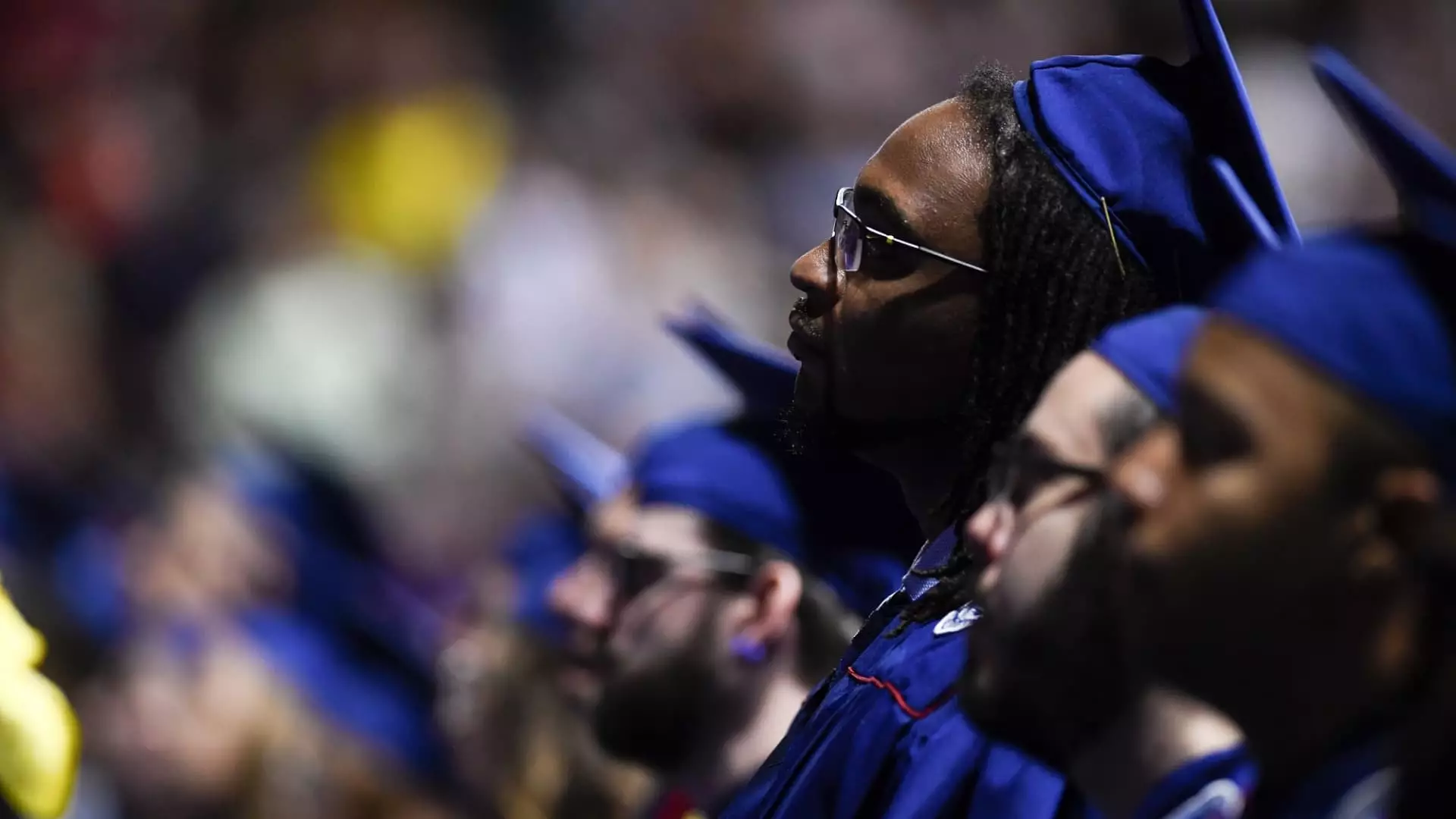For decades, countless students have been sold the dream that a degree in finance is their golden ticket to wealth and stability. The narrative remains compelling: get your finance degree, land a high-paying job, and secure a prosperous future. Yet, beneath this shiny surface lies a sobering reality that questions the validity of this mainstream belief. Despite widespread optimism among students, recent evidence suggests that the perceived security of a finance degree is increasingly a mirage, built on societal myths rather than concrete job prospects.
Convincing as it appears, the notion that finance guarantees career longevity fundamentally ignores the volatile economic landscapes and evolving market demands. The recent survey by the CFA Institute, which indicates a surge in confidence about finance’s career prospects, may reflect aspirational thinking rather than actual market reality. Confidence and employment are two vastly different metrics, and increasingly the data favors the latter as a measure of genuine opportunity. If anything, the numbers tell a story of disconnect: while students believe finance is their secure path, the real-world employment landscape tells a more nuanced, often less encouraging, story.
The Myth of Job Security and Economic Displacement
The most glaring issue with banking on a finance degree as a panacea is the fragile nature of job security in today’s economy. The Federal Reserve Bank of New York’s recent analysis finds that recent graduates face a rising unemployment rate of nearly 6%. This figure underscores a mounting uncertainty that no amount of prestigious internships or high GPAs can fully shield students from. What’s more alarming, however, is the broader trend sweeping across various fields.
Fields once deemed reliable—such as STEM—are not immune. The rise of artificial intelligence and automation has begun to eat away at jobs traditionally seen as stable, notably in computer science and related tech fields. The near standstill in computer science employment growth, despite a post-pandemic boom, signals a critical shift in the job market that many students overlook. Meanwhile, careers in the liberal arts and humanities—long considered less lucrative—are showing unexpectedly better employment statistics. Art history majors and nutrition students enjoy remarkably low unemployment rates, challenging the notion that only STEM or finance degrees lead to meaningful employment.
This stark contrast highlights a fundamental flaw in our societal perception: the false dichotomy that higher earning potential equals job security. The truth is, the global economy is increasingly unpredictable, and the idea that college majors with the highest starting salaries are inherently the safest is increasingly flawed.
The Superficiality of Societal Expectations and Parental Influence
Much of the inflated confidence surrounding finance stems from societal pressure and parental influence—forces that often prioritize immediate monetary gain over genuine career satisfaction. The phrase “finance bro” encapsulates both the allure and the superficial stereotypes that accompany the industry: wealth, prestige, and material success. These societal narratives foster a skewed perception that a finance degree automatically leads to upward mobility, a myth that is difficult to dispel once ingrained.
Yet, what remains overlooked in this narrative is the importance of soft skills, creativity, and adaptability—traits increasingly vital in the modern economy. The rise of artificial intelligence and automation leaves little room for rote skillsets, pushing companies like BlackRock to seek hires with backgrounds in history, English, and liberal arts. These fields foster critical thinking and creativity—traits that machines have yet to replicate—and their value in an AI-dominated world is only going to increase.
The social dynamics behind educational choices reveal a troubling tendency: parents and societal expectations often push students toward “safe” fields like finance without considering personal aptitude or passion. This trend risks producing a workforce that is technically competent but creatively stifled—an unsustainable model for the future.
Reassessing the Value of a Liberal Arts Education in a Changing World
The increasing demand for liberal arts degrees is not just a counterculture rebellion; it reflects an honest recognition of the limitations inherent in overly specialized, profit-driven education models. As AI reshapes industries, creative thinking, storytelling, and nuanced understanding become more valuable than ever. A history major or an English graduate, once considered academically inferior in terms of immediate ROI, is now poised to excel precisely because of their adaptability and soft skills.
The traditional metrics of success—salary figures and unemployment rates among specific majors—fail to capture the true potential of diverse educational backgrounds. These metrics are narrow, often driven by societal biases and economic short-termism. What matters more is cultivating a populace capable of critical thought, ethical reasoning, and flexible problem-solving—traits that are more aligned with the liberal arts than with rote memorization or narrow technical skills.
Furthermore, the recognition of these capabilities by major industry players, such as BlackRock, signals a maturation in the understanding of economic sustainability. Instead of prioritizing immediate profit or superficial prestige, corporations are increasingly valuing the depth and versatility of their employees’ backgrounds. This shift challenges the outdated paradigm that fields like finance or computer science are the only gateways to success, pointing instead to a more balanced, human-centered approach to education and employment.
Engaging with the Reality: Beyond the Illusory Promise
Accepting these truths requires a redefinition of what it means to succeed after college. It’s time to move beyond the superficial allure of high starting salaries and reconsider what genuine job security means in a world characterized by rapid technological change and economic uncertainty. Investing in diverse, critical, and creative skills—rather than chasing the illusion of guaranteed stability in high-paying but volatile fields—provides a more honest, resilient foundation for the future.
The world is shifting beneath our feet, and the narratives we tell ourselves about career prospects are increasingly detached from reality. A purely financial perspective blinds us to the broader, more essential qualities that ensure adaptability and fulfillment in an uncertain future. Recognizing this dissonance allows us to foster a more nuanced, humane, and forward-thinking approach to education, one that values the full spectrum of human talent rather than narrow, market-driven metrics of success.

